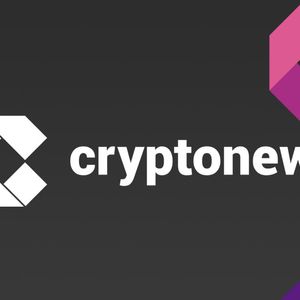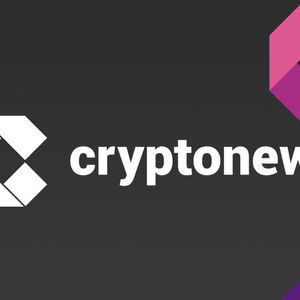BitcoinWorld Google Play Crypto Wallet Rules: Unprecedented Impact on Digital Assets A significant development has emerged from the Google Play Store, sending ripples through the cryptocurrency community. New Google Play crypto wallet rules are now in effect, requiring certain non-custodial crypto wallets to possess specific licenses to operate within the U.S. and EU regions. This move marks a pivotal moment for digital asset management and access. Understanding the New Google Play Crypto Wallet Rules According to information shared by Infinityhedge on Telegram, Google Play Store now mandates that non-custodial crypto wallets operating in the United States and the European Union must secure proper licensing. This isn’t just a minor update; it’s a fundamental shift in how these applications can function on the platform. What exactly do these new requirements entail? FinCEN Registration: For wallets operating in the U.S., a registration with the Financial Crimes Enforcement Network (FinCEN) is now necessary. This agency combats domestic and international financial crimes, including money laundering. State Banking License: Alternatively, U.S.-based wallets might need a state banking license, a more traditional form of financial authorization. MiCA License: For the European Union, the Markets in Crypto-Assets (MiCA) regulation is the key. A MiCA license ensures compliance with the EU’s comprehensive framework for crypto assets. Essentially, Google Play is enforcing Anti-Money Laundering (AML) and Know Your Customer (KYC) compliance directly through its app store policies. This effectively bans unlicensed wallets in the EU and imposes stringent regulatory oversight. Why Are These Crypto Regulations Emerging Now? The push for stricter crypto regulations is not new, but Google’s direct intervention highlights a growing trend. Governments and regulatory bodies worldwide are increasingly focusing on the digital asset space to prevent illicit activities and protect consumers. This aligns with a broader global effort to bring cryptocurrency operations under established financial frameworks. Regulators aim to achieve several objectives: Combatting Illicit Finance: By requiring FinCEN registration and MiCA license, authorities can better track transactions and prevent money laundering, terrorist financing, and other illegal activities. Consumer Protection: Licensing can offer a layer of protection for users, ensuring that wallet providers adhere to certain operational and security standards. Market Stability: Bringing clarity to the regulatory landscape can foster greater institutional adoption and overall market stability. How Do These Rules Impact Non-Custodial Crypto Wallets and Users? For users of non-custodial crypto wallets , these rules introduce both challenges and potential benefits. On one hand, the range of available wallets on Google Play might shrink, as smaller or non-compliant providers could be delisted. This could limit user choice and access to certain decentralized applications (dApps) that rely on specific wallet integrations. However, increased regulation might also lead to a more secure and trustworthy ecosystem. Users can have greater confidence that the wallets they download from Google Play meet specific compliance standards, potentially reducing the risk of scams or poorly managed services. Navigating the Future of Crypto Regulations Developers of non-custodial crypto wallets face a significant hurdle. Obtaining a FinCEN registration, state banking license, or MiCA license involves considerable time, cost, and legal expertise. This could disproportionately affect smaller development teams or open-source projects that lack the resources for extensive compliance procedures. What does this mean for the future? Increased Consolidation: Larger, well-funded companies might be better positioned to meet these demands, potentially leading to market consolidation. Innovation Shift: Development might shift towards self-hosting, web-based wallets, or alternative distribution channels outside of major app stores. Compliance as a Priority: For any wallet aspiring to be on Google Play, compliance will become a core part of their product development from the outset. These new Google Play crypto wallet rules underscore the evolving relationship between traditional tech giants and the decentralized crypto world. While they present challenges for accessibility and the ethos of decentralization, they also signal a maturing industry where regulation plays an increasingly vital role. Adapting to these changes will be crucial for all participants in the digital asset space. Frequently Asked Questions (FAQs) What exactly are the new Google Play crypto wallet rules? Google Play now requires non-custodial crypto wallets in the U.S. and EU to hold specific licenses, such as FinCEN registration, a state banking license (U.S.), or a MiCA license (EU), effectively enforcing AML/KYC compliance. Does this affect all crypto wallets? These rules primarily target non-custodial crypto wallets that operate in the U.S. and EU and are distributed via the Google Play Store. What is a FinCEN registration? FinCEN registration is a requirement by the Financial Crimes Enforcement Network in the U.S. for businesses involved in financial activities, including those dealing with cryptocurrency, to help combat financial crimes. What is a MiCA license? A MiCA license refers to compliance with the European Union’s Markets in Crypto-Assets (MiCA) regulation, a comprehensive framework for the regulation of crypto assets and related services within the EU. How will these crypto regulations impact users’ access to non-custodial wallets? Users might see a reduction in the number of non-custodial crypto wallets available on Google Play, as unlicensed providers may be delisted. This could limit choice but potentially increase the overall security of available options. Did you find this article informative? Share these crucial insights with your network to help others understand the evolving landscape of digital asset regulation! To learn more about the latest crypto market trends, explore our article on key developments shaping Bitcoin institutional adoption . This post Google Play Crypto Wallet Rules: Unprecedented Impact on Digital Assets first appeared on BitcoinWorld and is written by Editorial Team














